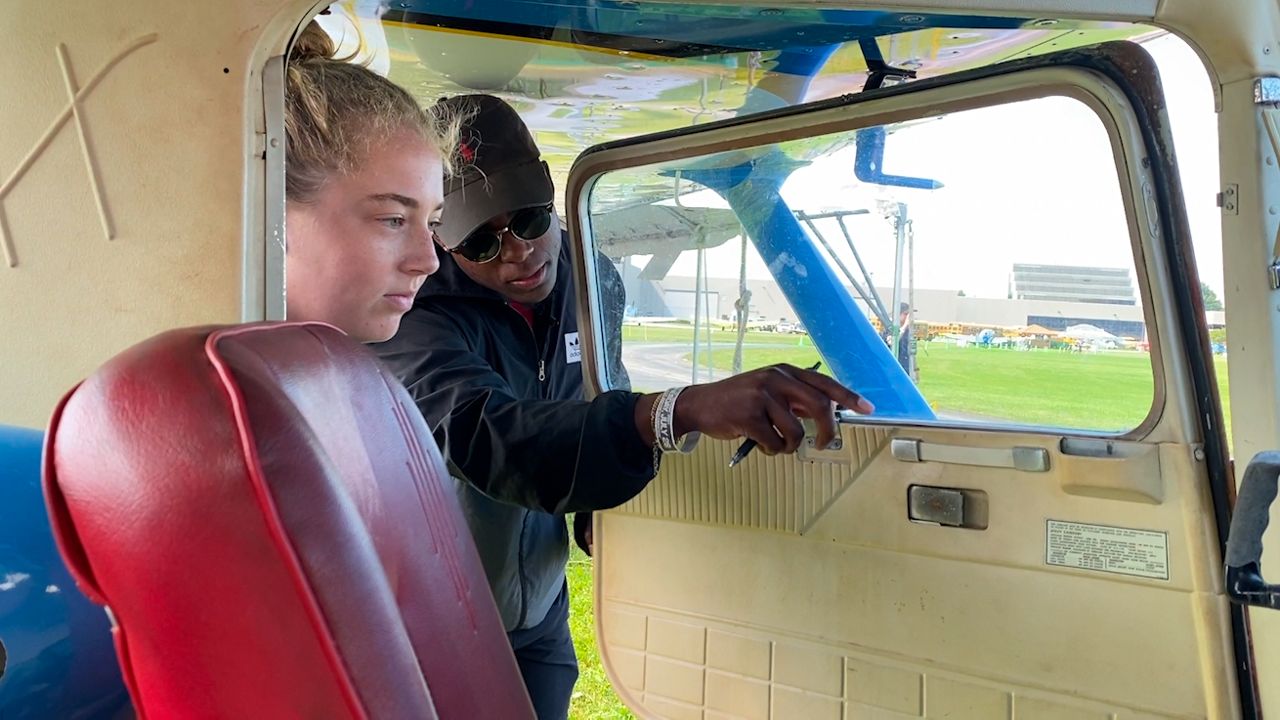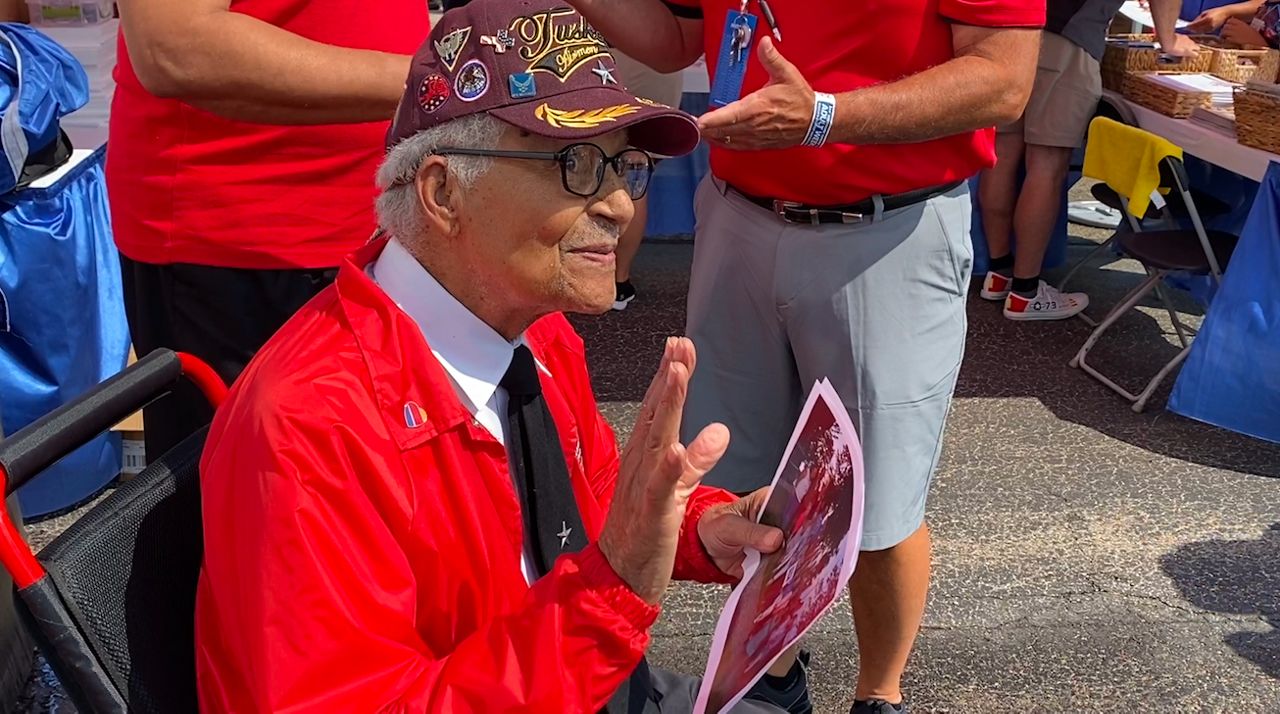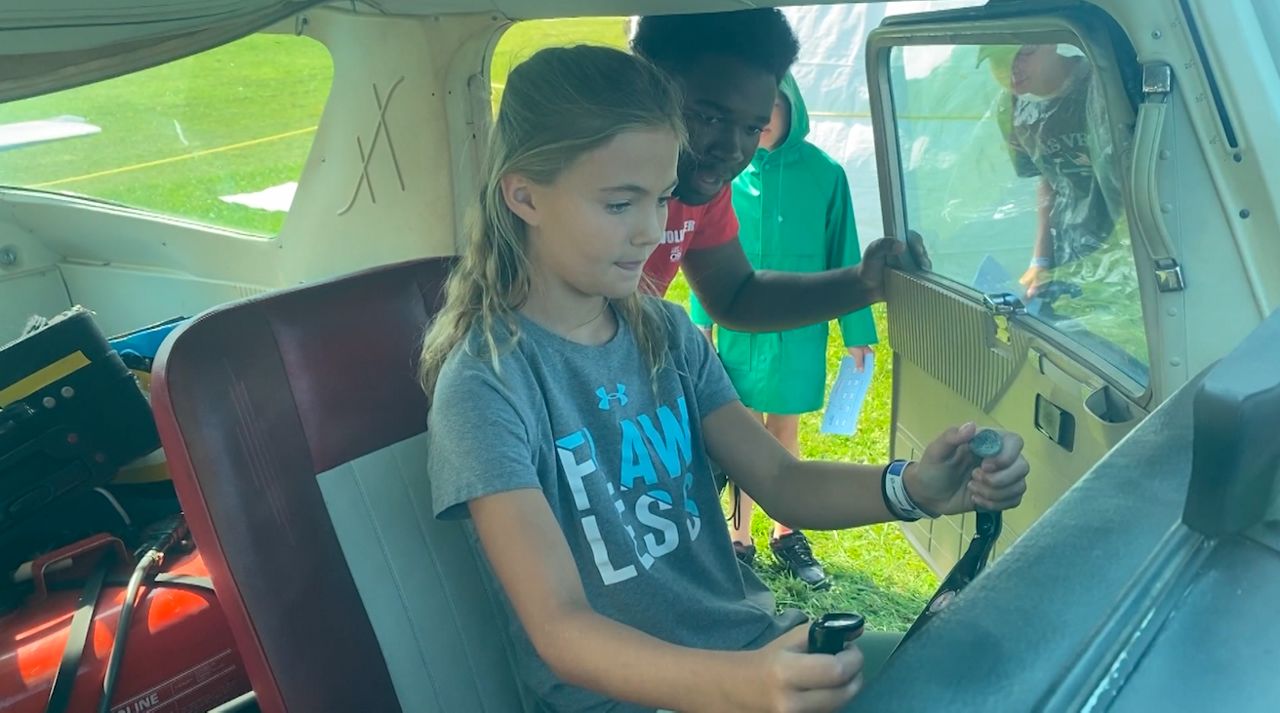They’re based out of an Alabama town with an iconic name.
“I fly a Piper Cherokee 180 back in Tuskegee, Alabama,” said Marquaus Carter, a Red Tails Scholarship recipient.
Tuskegee is home to the famed World War II training grounds where the first Black aviators in United States military history learned to fly. Formed in 1941, the original Tuskeegee Airmen flew planes marked with a distinctive red tail.
Although almost 80 years have passed, Black pilots are still underrepresented.
“There’s only 2% of people in the world that are Black pilots,” said London Amoah, a Red Tail Scholarship recipient. “The goal is to expand that and the goal overall is to expand aviation as a whole. If we can keep doing that, we can get very far.”
Carter and Amoah are using the scholarships to pursue their dreams. Amoah wants to become a commercial or charter pilot and Carter wants to become an instructor for the Red Tails Foundation. The importance of training at Tuskegee is not lost on the young pilots.

“You know that you’re on holy ground,” Amoah said. “You know that the people that paved the way for you to fly trained there, so it’s a big deal. I take it seriously each day I go there and fly.”
“It makes me want to work hard and do something bigger than myself and be great and carry on their legacy,” Carter said.
Brigadier General Charles McGee flew 136 combat missions in World War II as a Tuskegee Airman. He’s delighted to see another generation of Black pilots taking flight.
“That’s the future of the country,” McGee said. “What they’re doing is certainly a beautiful step in that direction, so we wish them well.”

McGee visited with the pilots and left an impression.
“Actually shaking his hand, it was crazy,” Amoah said. “It was a great experience, and he taught me a lot today too.”
McGee was impressed with the young pilots' abilities and passion.
“I don’t know that I need to push them because they’ve already made up their mind and that’s great," McGee said.
A film recently came out called ‘'Red Horizon’' that documents the Tuskegee legacy and the work done through the Red Tails Scholarship Foundation. Carter enjoyed the movie-making experience and made an appearance in a couple of scenes.

“It was remarkable seeing how they put it together and seeing our stories,” Carter said. “It made it come alive more and have more meaning. It was something bigger than what we are and what we are doing.”
At EAA AirVenture, they’re reaching out to the next generation of pilots, walking them through a pre-flight checklist. They’re raising awareness for the Red Tail Scholarship Foundation, trying to carry on the legacy of the original Tuskegee Airmen.



